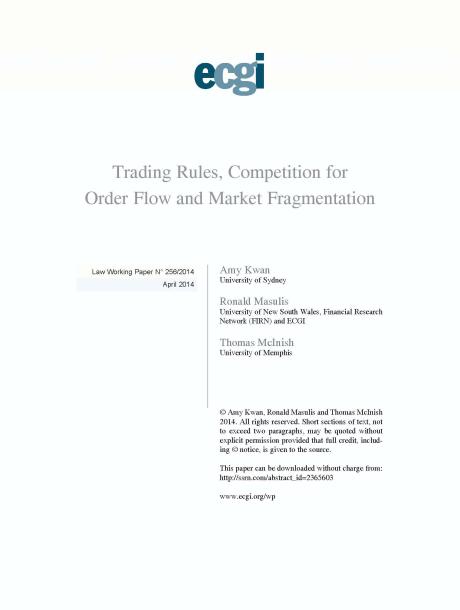
Law Series
Trading Rules, Competition for Order Flow and Market Fragmentation
Abstract
We investigate competition between traditional stock exchanges and new ?dark? trading
venues using an important difference in regulatory treatment. SEC required minimum pricing increments constrain some stock spreads, causing large limit order queues. Dark pools allow some traders to by-pass existing limit order queues with minimal price improvement. Using a regression discontinuity design, we find spread constraints significantly weaken exchanges? competitiveness. As more orders migrate to dark pools,
the probability of subsequent order execution there increases, raising liquidity. The ability
to circumvent time priority of displayed limit orders is one cause of the rapid rise in U.S.
equity market fragmentation.

